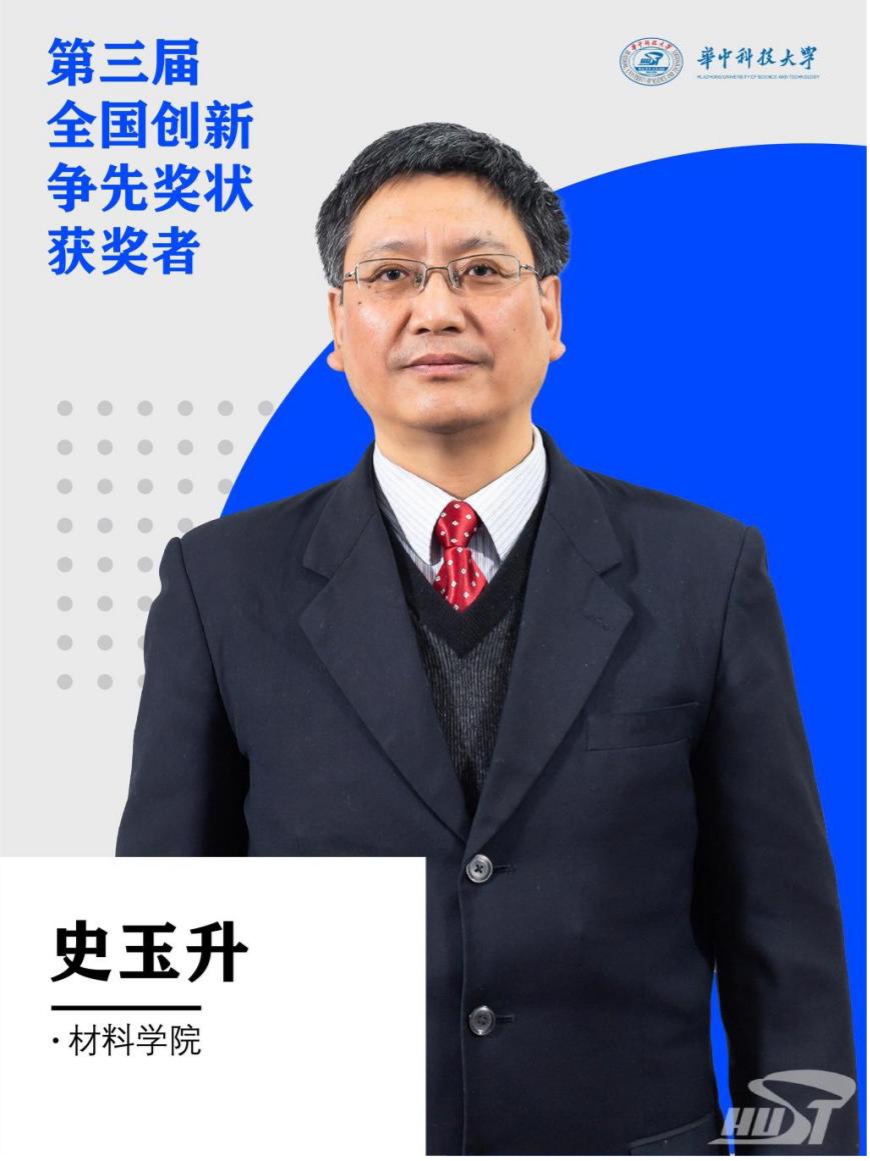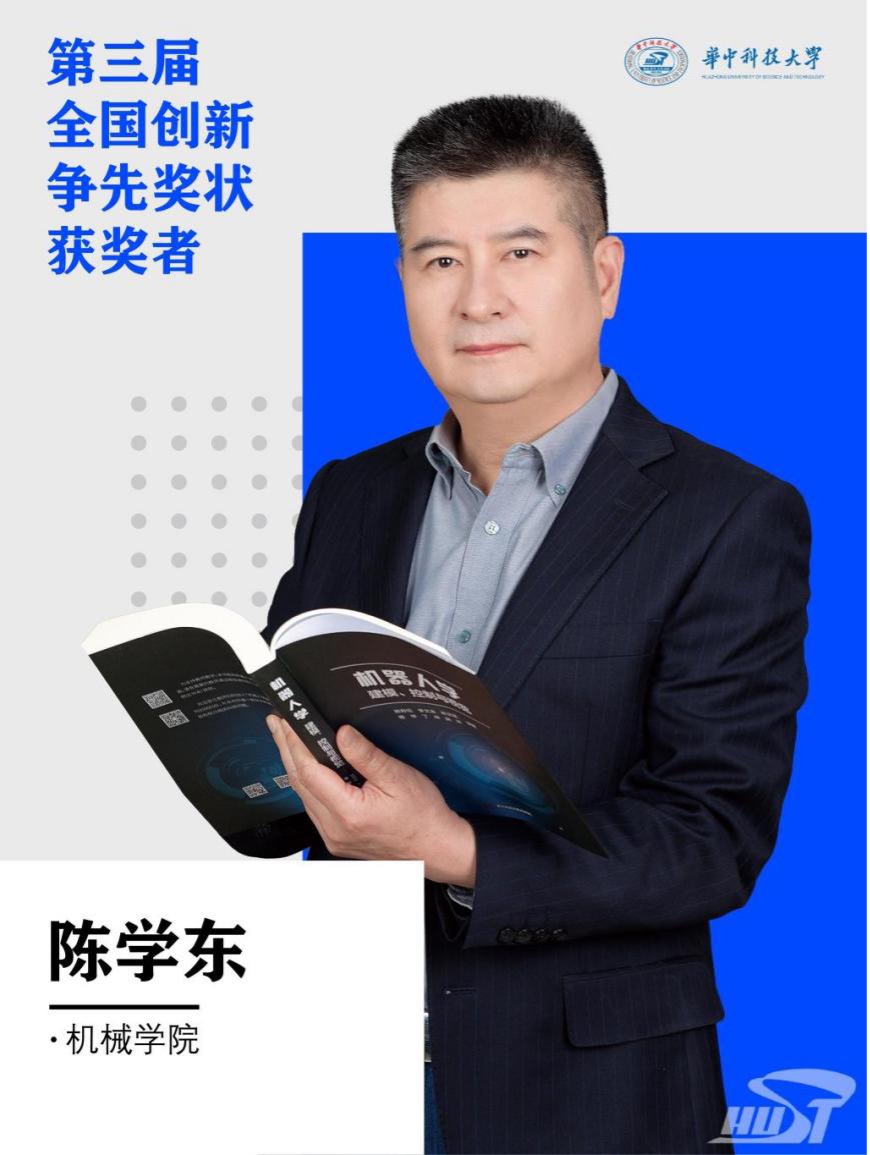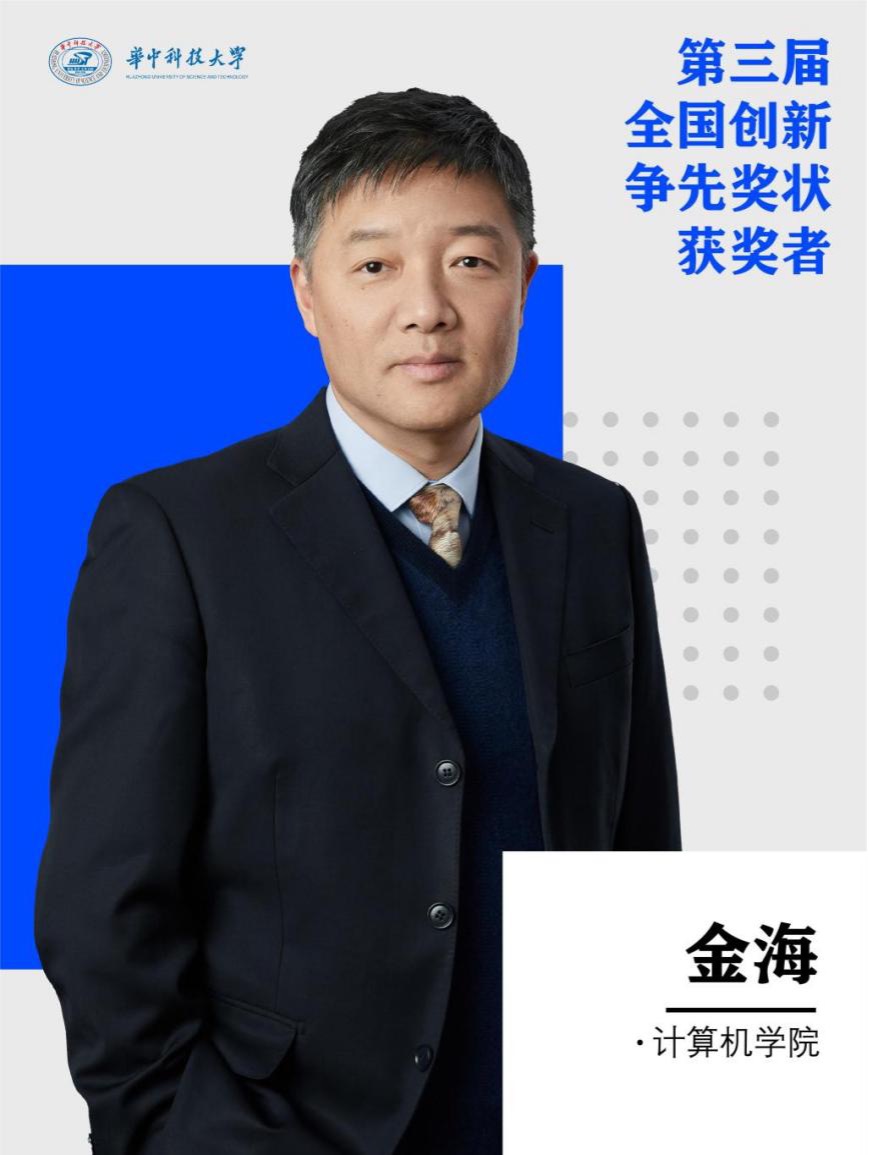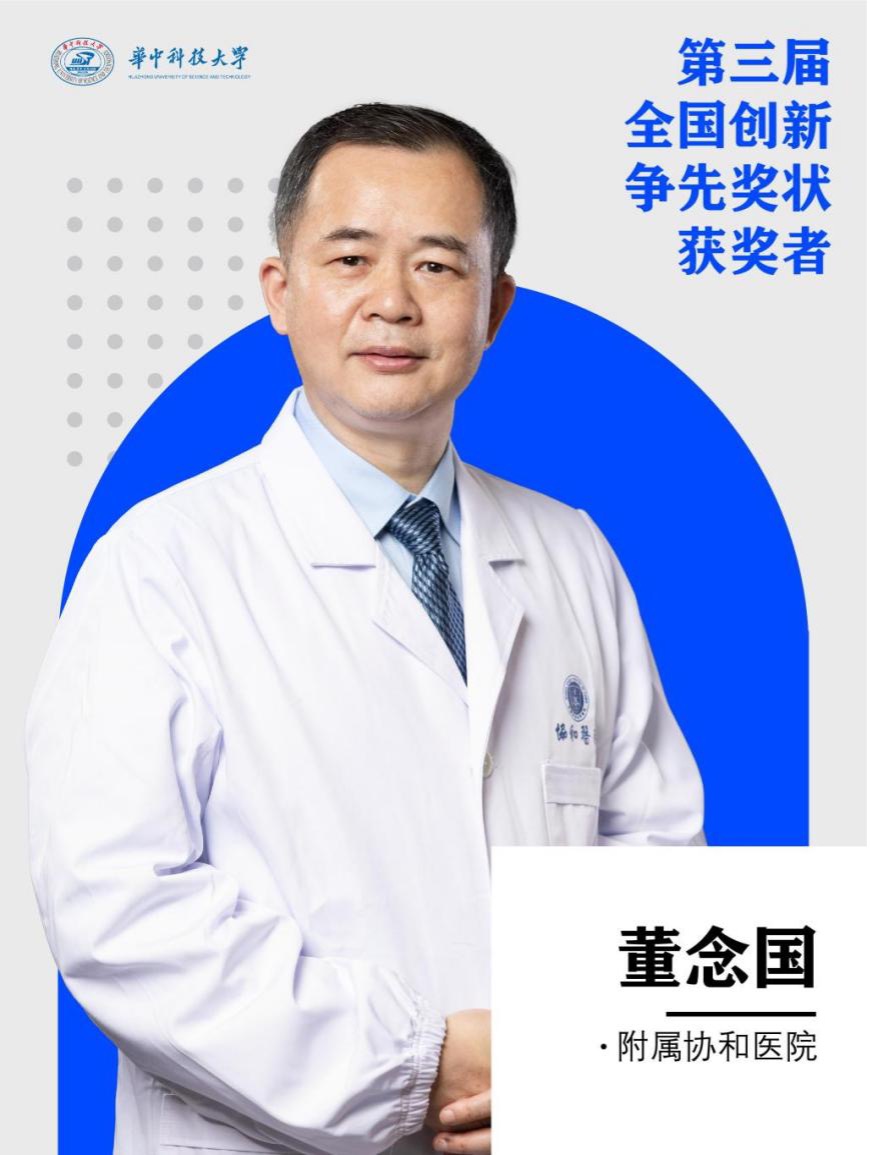Four Faculty Members of HUST Awarded the Third National Innovation and Pioneer Medal
On May 30, the third National Innovation Competition Award was announced on the occasion of the seventh National Science and Technology Workers' Day. The Ministry of Human Resources and Social Security, China Association for Science and Technology, Ministry of Science and Technology, and State-owned Assets Supervision and Administration Commission of the State Council decided to award the third National Innovation Competition Medals to seven teams, including the Marine Submerged Tube Tunnel Construction Technology Innovation Team; awarded the third National Innovation Competition Medals and provincial and ministerial commendation rewards to 26 comrades, including Ma Dawei; and awarded the third National Innovation Competition Certificates to 251 comrades, including Ding Wenjiang.
Among them, Professor Yusheng Shi from the School of Materials Science and Engineering, Professor Xuedong Chen from the School of Mechanical Science and Engineering, Professor Hai Jin from the School of Computer Science and Technology, and Professor Nianguo Dong from the Affiliated Union Hospital of HUST were awarded the Third National Innovation and Pioneer Certificates.
The National Innovation Competition Award was established in 2017 and is awarded every three years. Each time, no more than 10 scientific research teams are awarded medals, no more than 30 science and technology workers are awarded medals, and no more than 300 science and technology workers are awarded certificates. Currently, the National Innovation Competition Award has become an important component and supplement of the national science and technology award system. It is an organic connection between national science and technology awards and major talent programs and is the second-highest science and technology talent award after the National Top Science and Technology Award.

Yusheng Shi is a Distinguished Professor at HUST. He has been engaged in research on additive manufacturing technology for a long time and has developed a series of additive manufacturing materials, such as polymers, ceramics, and metals, as well as integrated processes and equipment for preparation and shaping. He has made significant contributions to breaking through the bottleneck problems of in-situ, gradient, and functional component additive manufacturing technology. He has won two National Science and Technology Progress Second Class Awards, one National Technical Invention Second Class Award, one China Top Ten Science and Technology Progress, one China Top Ten Science and Technology Progress in Intelligent Manufacturing, ten Provincial and Ministerial First Class Awards, and the Special Award of Invention Entrepreneurship. He is also a contemporary inventor, a nominee of Top Ten National Outstanding Science and Technology Workers, and an expert awarded the special allowance of the State Council, the Wuhan City Award for major contributions to science and technology, and the May 1st Labor Medal in Hubei Province. The team led by him was selected as an innovative team in Hubei Province and by the Ministry of Education.

Xuedong Chen is the Executive Deputy Director and Professor of the National Key Laboratory of Intelligent Manufacturing Equipment and Technology. He has proposed multi-field coupled mechanical modeling, computing, and control methods to tackle key technologies such as ultra-precision equipment control precision, dynamic load equipment vibration reduction, and heavy load equipment enhancement. in response to major national needs. He has pioneered the research and development of nanometer precision worktables, quasi-zero stiffness vibration isolators, large-scale structural dynamic design and testing systems, and other equipment, which have been applied to 15 categories and 50 types of major equipment, achieving many firsts and innovations in China's high-end equipment manufacturing, and making important contributions to break through key problems of independent home-grown technology. As the first author, he has won two national second prizes for technology invention, one national second prize for scientific and technological progress, six provincial and ministerial first prizes, obtained 123 Chinese invention patents, 5 US and Japanese invention patents, 30 software copyrights, and published 102 SCI papers and 2 academic monographs. In 2021, he was awarded the "Special Expert of Hubei Province" title, and in 2022, he won the 14th Guanghua Engineering Science and Technology Award and the title of "Most Beautiful Science and Technology Worker of Hubei Province".

Hai Jin is a professor in the School of Computer Science and Technology at HUST. He has long been engaged in research on parallel and distributed systems and has made significant contributions in the fields of resource management, topology interconnection, and customized design of high-performance parallel systems for large-scale distributed systems. He has presided over two national 973 program projects and other important scientific tasks, published 220 papers in IEEE/ACM journals and important international academic conferences, with a Google Scholar H-index of 80 and more than 30,000 total citations. He has obtained 28 international invention patents. He has developed creative achievements such as a distributed system resource management method based on hot deployment and hot migration, a distributed system topology organization mechanism combining inter-network collaboration and tree networks, and a customized design theory and method for parallel systems based on data flow patterns. He is the Vice President of the China Computer Federation and the Vice President of the bachelor review committee of the International IEEE Computer Society. He has won one national second prize for natural science and two national second prizes for scientific and technological progress as the first author.

Nianguo Dong is the Director of Cardiac and Macrovascular Surgery, Director of Organ Transplantation Center, and Director of the Cardiovascular Research Institute at Tongji Medical College affiliated with Union Hospital. He is a leader of pediatric heart transplantation in China, a pioneer in the development and application of new minimally invasive heart failure support devices, and a creator of the world's first cell-based heart valve material. For many years, Dong has overcome difficulties in the field of severe and complex heart disease, insisting on technological innovation, and repairing the "broken hearts" of countless heart disease patients who nearly died. To help more heart failure patients grasp their last chance at life, Dong's transplant team has been running in the life-saving relay of "heart retrieval", "heart replacement", and "heart protection" all year round, averaging 200,000 kilometers of travel per year and completing a heart transplant surgery every three days. By creating numerous "firsts", he has set many new records, such as the record for the youngest (53 days) child heart transplant in Asia, the record for the oldest (76 years) heart transplant in the world, and the world's smallest and lightest "artificial heart" implantation. As the chief scientist, Dong has led 13 programs including national key R&D programs, the 12th Five-Year Plan for Science and Technology Support, the 863 Program, and key projects of the National Foundation of China. He has published 384 papers, edited and translated 9 monographs, and has been granted/applied for 37 national invention patents.
